An architect-designed market stall is an upgrade for Lagos traders
With his modular ‘umbrella crate stall’, architect Paul Yakubu – fascinated by the informal structures of market traders in the Nigerian capital – has designed an adaptable, scalable solution
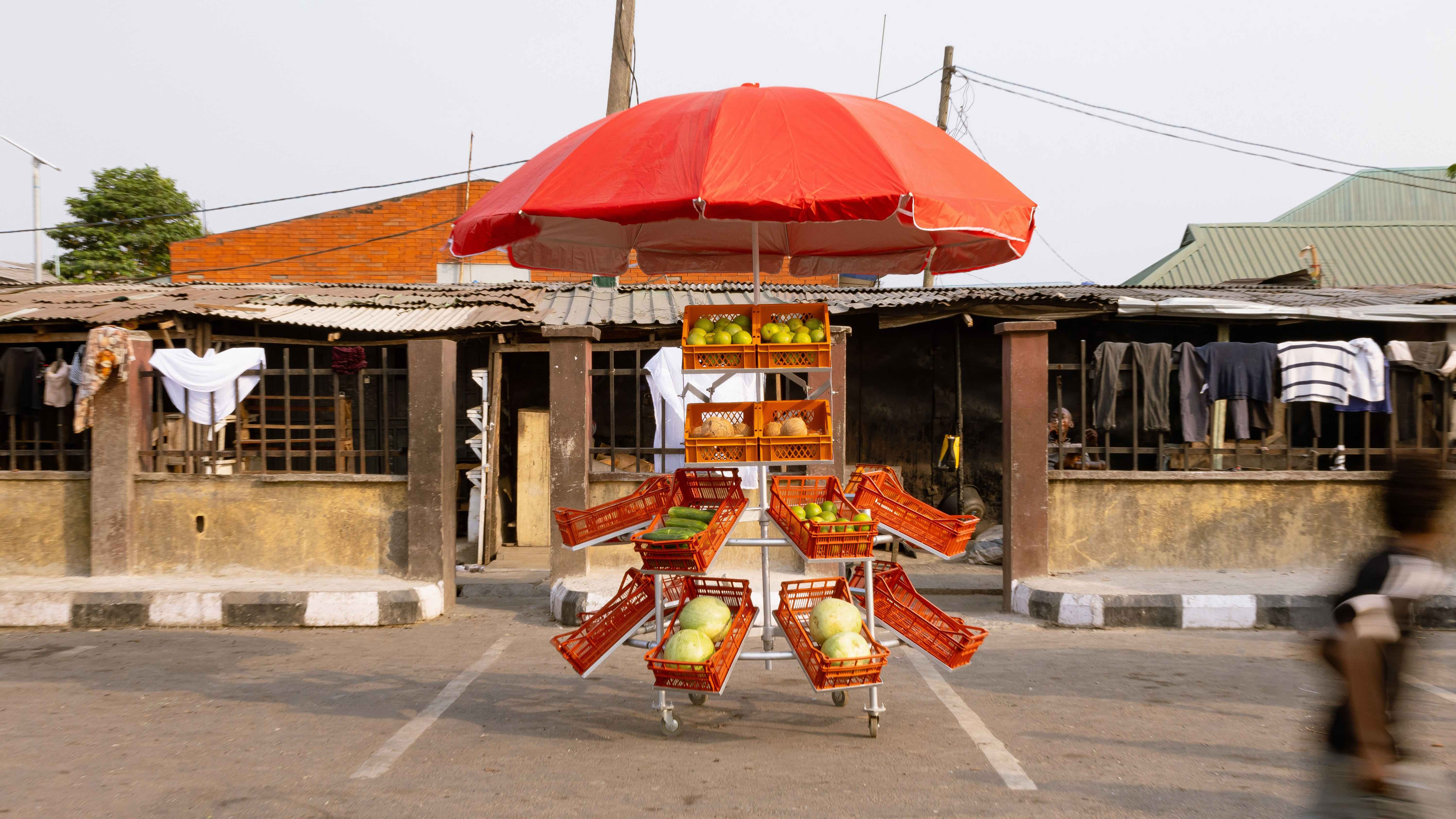
In Lagos, design is resilient – raw, adaptive, and born of necessity – traits that are evident throughout the city, especially in its bustling street life. One of the most notable examples is the colourful umbrella stalls that populate the markets. These informal merchandising systems are transitory by nature, providing flexible shelters for all kinds of traders – from convenience stores and restaurants to barber shops and beyond. While they may not be recognised as ‘design’ through a Western lens, they play a significant role in shaping the city’s architectural language.
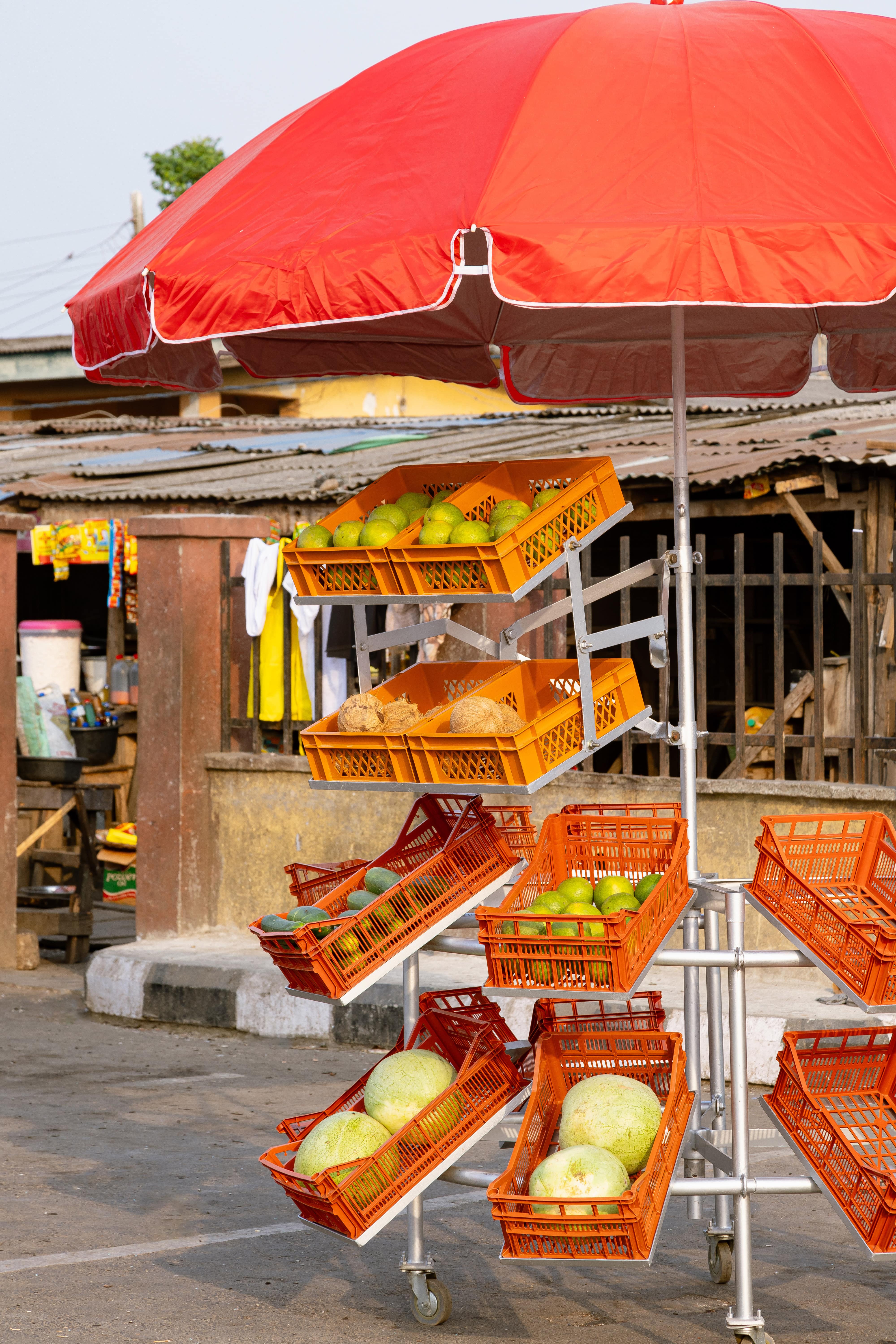
'I started living in Lagos after my first degree in architecture and became fascinated by the prevalence of umbrella stalls in the city,' says Paul Yakubu, a Nigerian architect who grew up some 200 miles to the east of Lagos in Benin City, southern Nigeria.
Intrigued by their significance, he began researching the role of these informal structures in small-scale architecture. Through conversations with traders, he discovered that the umbrella functions not only as a shelter but also creates identity for shop owners and marks territory in the constantly shifting spaces of the markets. 'I sought to ask the question “How do you design for informality?”'
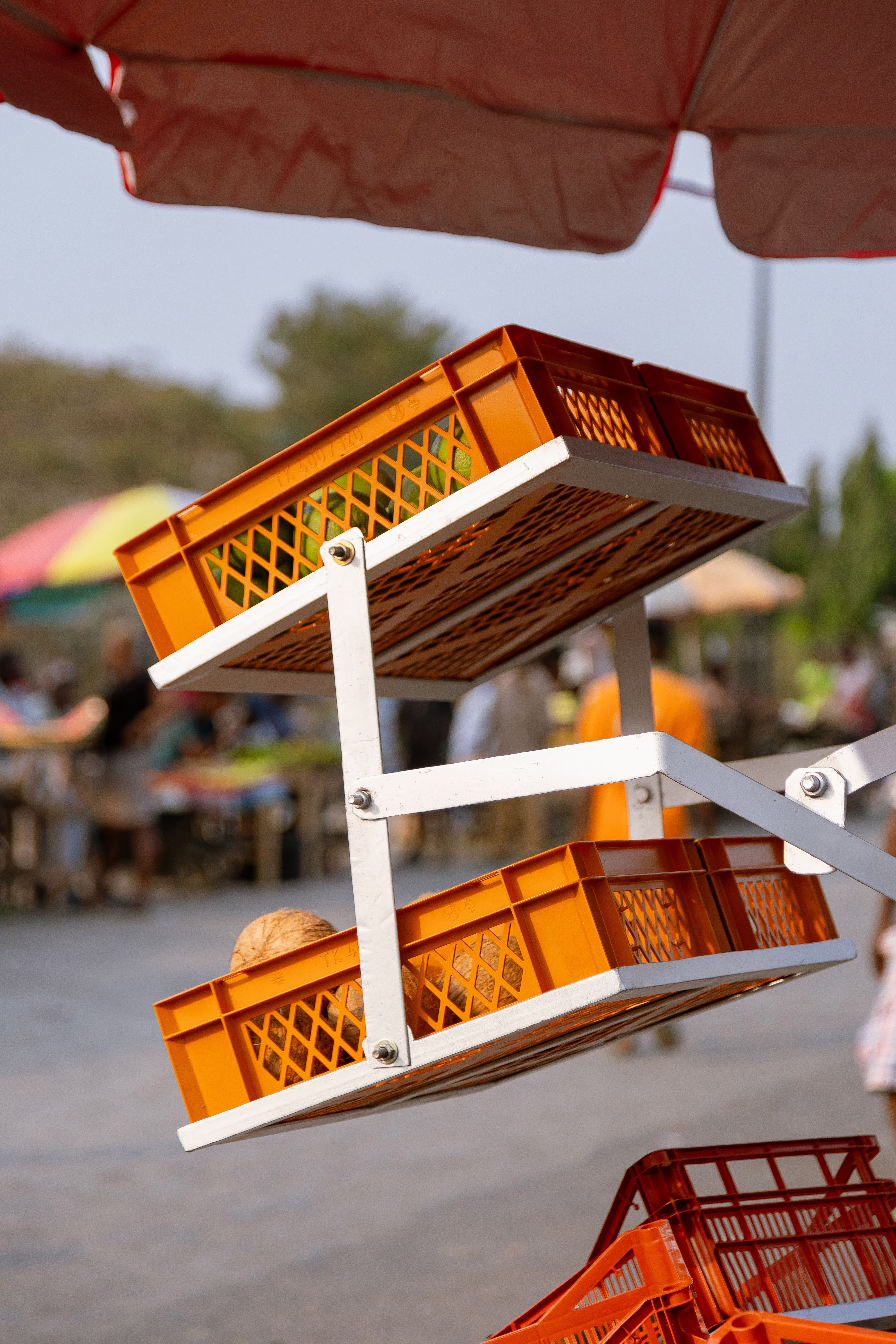
This question led Yakubu, who spent several years studying and working in London, to develop his own interpretation of the umbrella stand. Drawing from the functional simplicity of the existing stalls, his design introduces a more structured and adaptable solution. The umbrella crate stall features a modular system of crates arranged around a circular frame, allowing for flexible product display and easy customisation.
The design is scalable, growing from a basic four-crate module to a 20-crate structure, all within a 12 sq m circular area. In addition, the crates can pivot and rotate to accommodate different types of goods, so traders can add more components as their business expands. The lightweight, mobile structure is easy for traders to transport and set up, while also echoing the transitory nature of informal market spaces.
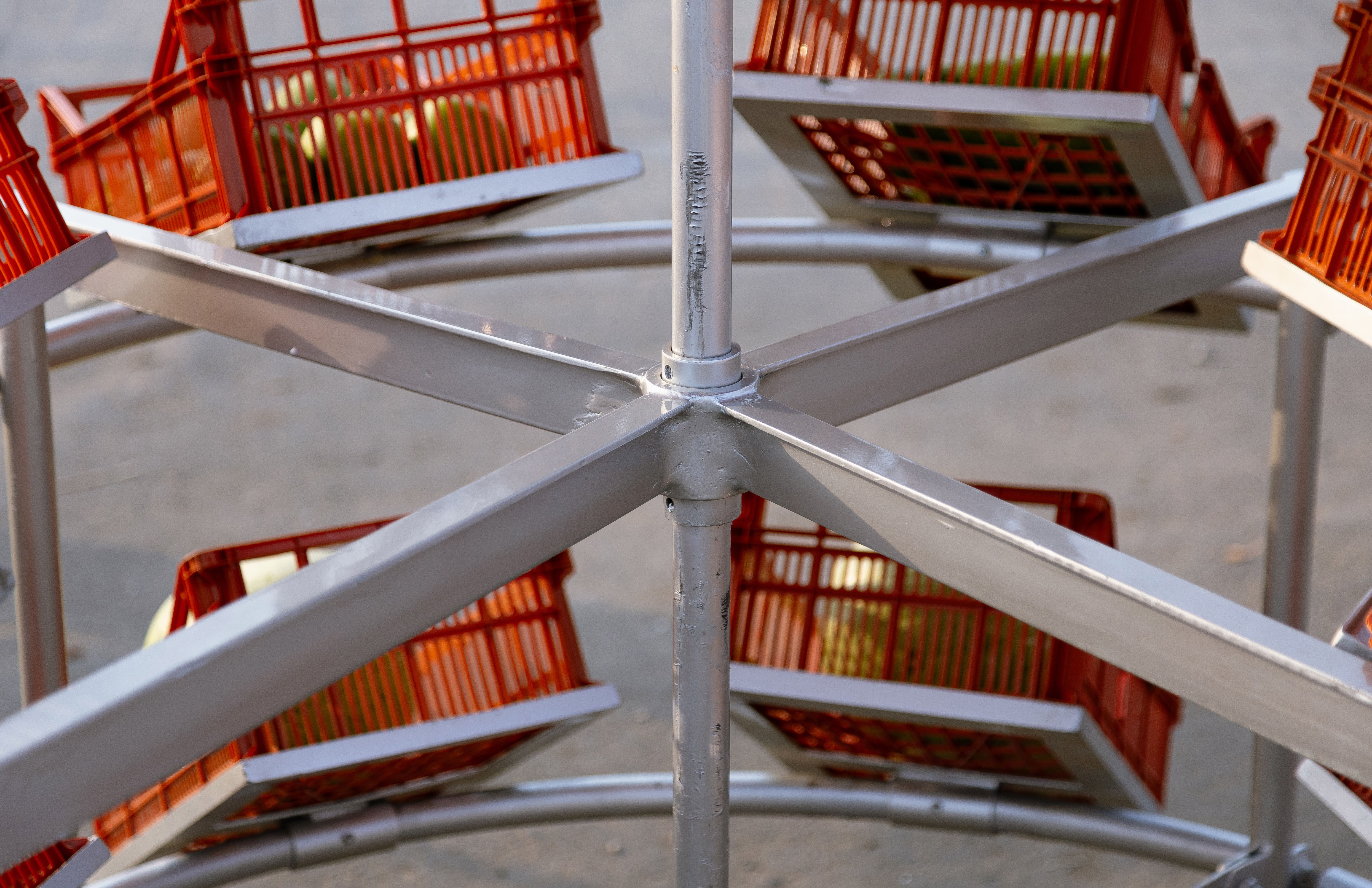
Yakubu’s aim is not just to provide a functional market stall, but to create a design solution that aligns with the adaptability and resilience of the informal spaces in which they are found. '"Design for informality” is an open-ended question that, through my design research, I’m constantly finding answers to,' he tells Wallpaper*. 'Conventionally, design is seen in a formal realm where one has to create a structure to fill a gap. But informality challenges these notions with transient spatial forms that continuously negotiate and adapt, often appearing chaotic.'
For Yakubu, designing for informality is about finding a middle ground between formal design principles and the raw, adaptive nature of informal spaces. He believes formal design can engage with the characteristics of informality – such as its flexible forms, materials, and ever-changing behaviours – while still providing an alternative or improved solution. Rather than imposing rigid structures, the goal is to create designs that acknowledge and enhance the fluidity and resilience inherent in informal spaces.
Receive our daily digest of inspiration, escapism and design stories from around the world direct to your inbox.
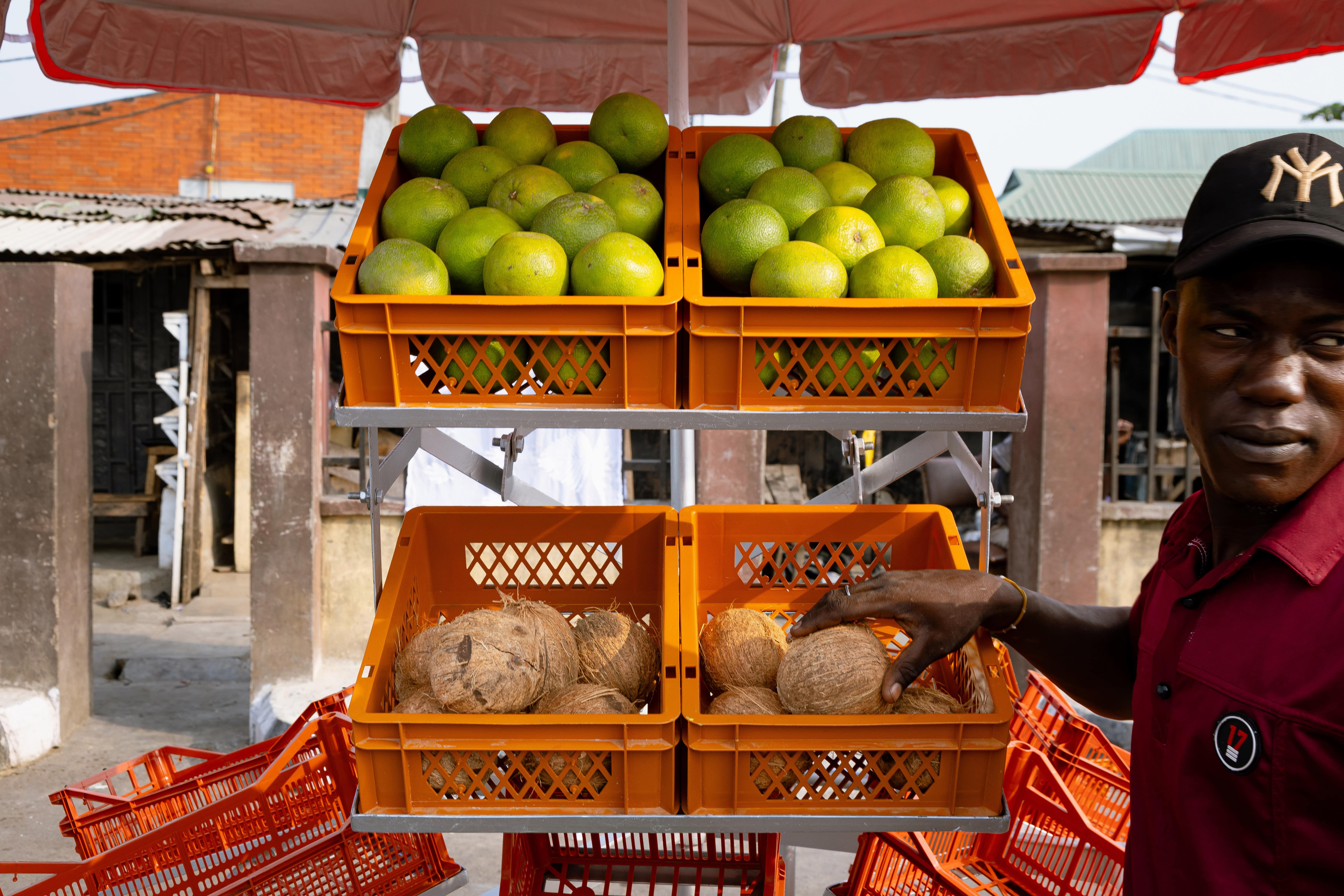
'It's so significant to my work because of the inherent value informal design brings to our cities,' he says citing Lagos as a prime example – where the markets are often seen as blighted elements of the city that need to be removed. However, he believes these spaces speak to the ephemeral and transitory nature of environments, the negotiation of space, and adaptive reuse of materials. It is within this informality that he sees alternative solutions to the challenges of architecture in our cities. 'My work tries to interrogate, communicate with these informal ideals and ultimately celebrate them through design to help my society see their value and beauty.'
Yakubu's umbrella crate stall is in its product development phase, with prototypes being transformed into a finished architectural product that will be accessible to open market traders. This process involves working with potential manufacturers to optimise the design, as well as conducting long-term market studies to gather additional feedback on the prototype – some of which is captured in the film above, made by Yakubu himself.
'One of my main goals is for traders to take ownership of the project and adapt it to their needs,' Yakubu explains. 'I'm seeking a dialogue with informality – where traders engage with this project and transform it into new solutions from which we designers can learn. Beyond creating an accessible market stall solution for traders, I hope to foster this dialogue – a circular process that deepens our understanding and provides answers on how to design for informality.'
umbrellaarchitecture.com
Ali Morris is a UK-based editor, writer and creative consultant specialising in design, interiors and architecture. In her 16 years as a design writer, Ali has travelled the world, crafting articles about creative projects, products, places and people for titles such as Dezeen, Wallpaper* and Kinfolk.